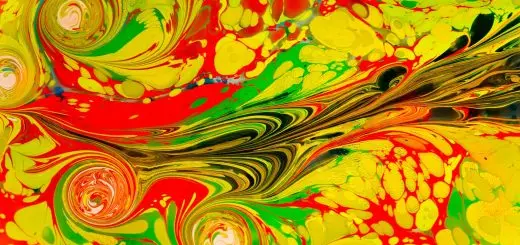Taoist Festivals and Celebrations: Cultural Highlights

Looking for more amazing products? Check out our online store and explore our collection here! Happy shopping!
Before diving in, please note: This post is for informational purposes only. If you’d like to know more about how we approach topics, feel free to check out our friendly Disclaimer Page.
Hey there, amazing readers! 
We’re committed to delivering quality posts, and your support (even just sticking around despite the ads) means everything to us. So, bear with us, and thanks for helping us keep the good vibes rolling. Now, on to the fun stuff!
TRANSLATE BUTTON AT THE END OF THE ARTICLE
Introduction to Taoist Festivals
Taoist festivals are vibrant celebrations that hold significant cultural and spiritual importance for followers of Taoism.
These festivals provide a unique opportunity for Taoists to come together, honor their beliefs, and connect with their community.
Throughout the year, various festivals mark important dates in the Taoist calendar, each with its own rituals, traditions, and customs.
From elaborate ceremonies to colorful parades and delicious feasts, Taoist festivals offer a glimpse into the rich tapestry of Taoist culture and heritage.
Key Taoist Celebrations
Taoist festivals encompass a wide range of celebrations that revolve around honoring deities, ancestors, and nature.
Some of the key Taoist celebrations include the Lunar New Year, the Qingming Festival, the Dragon Boat Festival, and the Mid-Autumn Festival.
These festivals are deeply rooted in Taoist beliefs and traditions, with each one carrying its own symbolic significance and rituals.
Whether it’s paying respects to ancestors, seeking blessings for the coming year, or celebrating the changing seasons, Taoist festivals play a vital role in maintaining cultural identity and spiritual connections.
Origins of Taoist Festivals
The origins of Taoist festivals can be traced back to ancient China, where Taoism emerged as a philosophical and religious tradition.
Over the centuries, Taoist beliefs and practices evolved, blending with indigenous customs and cultural traditions to create a diverse tapestry of festivals and celebrations.
Many Taoist festivals have their roots in agricultural rites, honoring harvests, seasonal changes, and the cycles of nature.
Others are dedicated to venerating deities, spirits, and ancestors, reflecting the complex interplay between the spiritual and material worlds in Taoism.
Spiritual Significance
Taoist festivals hold deep spiritual significance for practitioners, serving as sacred moments of connection with the divine and the unseen realms.
These festivals are often marked by rituals, prayers, and offerings aimed at invoking blessings, protection, and guidance from the spiritual forces believed to govern the universe.
Through these practices, Taoists seek to harmonize with the natural order, balance the energies of yin and yang, and cultivate virtues such as compassion, humility, and wisdom.
Taoist festivals are not just cultural events but profound spiritual experiences that reaffirm the interconnectedness of all beings.
Festive Traditions and Customs
Taoist festivals are characterized by a rich tapestry of traditions and customs that vary from region to region.
These may include elaborate processions, intricate paper offerings, mesmerizing lion dances, and vibrant street performances.
Food also plays a central role in Taoist festivals, with special dishes prepared to honor deities, ancestors, and guests.
Traditional costumes, colorful decorations, and auspicious symbols are often used to create a festive atmosphere and ward off negative energies.
These traditions and customs add depth and meaning to Taoist celebrations, fostering a sense of community and shared identity among practitioners.
Popular Taoist Festivals
Some of the most popular Taoist festivals celebrated around the world include the following:
Lunar New Year: A time of renewal and new beginnings, marked by family gatherings, feasting, and rituals to attract good luck and prosperity.
Qingming Festival: Also known as Tomb-Sweeping Day, a time to honor ancestors, clean their graves, and make offerings to ensure their well-being in the afterlife.
Dragon Boat Festival: Commemorating the poet Qu Yuan, featuring dragon boat races, zongzi (sticky rice dumplings), and the hanging of aromatic herbs to ward off evil spirits.
Mid-Autumn Festival: Celebrating the harvest moon, with mooncakes, lantern displays, and prayers for blessings, reunion, and good fortune.
These festivals are cherished by Taoists and non-Taoists alike for their cultural richness, festive spirit, and timeless traditions.
Regional Variations
While Taoist festivals share common themes and practices, there are also regional variations that reflect the diverse cultural landscapes where Taoism has taken root.
In China, Taoist festivals may be marked by grand temple ceremonies, solemn rituals, and elaborate processions through bustling city streets.
In Southeast Asia, Taoist communities may celebrate with colorful parades, martial arts performances, and street opera shows.
Each region brings its own unique flair to Taoist festivals, blending local customs with Taoist beliefs to create a tapestry of cultural expressions that celebrate the unity in diversity.
Taoist Festival Foods
Food plays a central role in Taoist festivals, with specific dishes prepared to symbolize prosperity, longevity, and good fortune.
Some of the traditional foods associated with Taoist celebrations include:
Dumplings: Symbolizing wealth and prosperity, dumplings are a staple during the Lunar New Year.
Nian gao: Also known as rice cake, nian gao represents growth, progress, and success in the coming year.
Tangyuan: Sweet glutinous rice balls served during the Lantern Festival to symbolize family unity and harmony.
Longevity noodles: Served during birthdays and other auspicious occasions, longevity noodles represent a long and fulfilling life.
These foods are not only delicious but also carry deep symbolic meanings that resonate with Taoist beliefs and values.
Rituals and Ceremonies
Taoist festivals are marked by a plethora of rituals and ceremonies that serve to honor deities, ancestors, and the natural world.
These may include:
Incense offerings: Burning incense as a way to communicate with the divine and seek blessings.
Ancestor worship: Paying respects to deceased relatives and ancestors through prayers, offerings, and rituals.
Dragon dances: Symbolizing good luck and prosperity, dragon dances are performed to drive away negative energies.
Blessing ceremonies: Seeking blessings from deities and spirits for health, wealth, and happiness in the coming year.
These rituals and ceremonies form the heart of Taoist festivals, guiding practitioners on their spiritual journey and fostering a deeper connection with the divine.
Symbolism in Taoist Celebrations
Symbolism plays a crucial role in Taoist celebrations, with each ritual, object, and gesture carrying layers of meaning and significance.
Some common symbols found in Taoist festivals include:
The yin-yang symbol: Representing the balance of opposing forces in the universe and the harmony of complementary energies.
Lotus flowers: Symbolizing purity, enlightenment, and spiritual rebirth, lotus flowers are often used in Taoist rituals.
Dragons: Regarded as symbols of power, strength, and good fortune, dragons feature prominently in Taoist festivals.
Lanterns: Signifying illumination, guidance, and enlightenment, lanterns are lit during the Mid-Autumn Festival to ward off darkness and bring blessings.
These symbols serve as visual reminders of Taoist principles and teachings, guiding practitioners towards spiritual growth and enlightenment.
Festivals in the Taoist Calendar
The Taoist calendar is filled with a myriad of festivals and celebrations that honor deities, ancestors, and cosmic forces.
Some of the key festivals in the Taoist calendar include:
The Spring Festival: Celebrating the arrival of spring, renewal, and new beginnings.
The Ghost Festival: Honoring deceased ancestors and spirits, with offerings of food, incense, and prayers.
The Double Ninth Festival: A time to pay respects to the elderly, climb mountains, and ward off evil spirits.
The Winter Solstice: Marking the longest night of the year, with rituals to celebrate the return of light and warmth.
These festivals follow the lunar calendar and are observed by Taoist communities around the world, reaffirming their connection to the cycles of nature and the rhythms of the cosmos.
Modern Observance of Taoist Festivals
In the modern era, Taoist festivals continue to thrive, adapting to changing times while preserving ancient traditions and customs.
Many Taoist communities have embraced technology and social media to connect with followers, share festival highlights, and promote cultural awareness.
Festivals are now celebrated on a global scale, with Taoist temples, cultural organizations, and community groups hosting events that welcome people from all walks of life.
Despite the challenges of the modern world, Taoist festivals remain a vibrant expression of cultural identity, spiritual connection, and community solidarity.
Conclusion
Taoist festivals are more than just cultural events – they are sacred moments of connection, reflection, and celebration that honor the rich tapestry of Taoist beliefs and traditions.
From the elaborate rituals of the Lunar New Year to the colorful parades of the Dragon Boat Festival, each festival offers a unique opportunity to deepen one’s understanding of Taoism and its timeless wisdom.
As Taoist communities around the world come together to celebrate these festivals, they reaffirm their shared values, beliefs, and heritage, creating a sense of unity and belonging that transcends borders and boundaries.
In a rapidly changing world, Taoist festivals serve as anchors of tradition, spirituality, and cultural pride, reminding us of the enduring power of faith, community, and connection.

The Enlightenment Journey is a remarkable collection of writings authored by a distinguished group of experts in the fields of spirituality, new age, and esoteric knowledge.
This anthology features a diverse assembly of well-experienced authors who bring their profound insights and credible perspectives to the forefront.
Each contributor possesses a wealth of knowledge and wisdom, making them authorities in their respective domains.
Together, they offer readers a transformative journey into the realms of spiritual growth, self-discovery, and esoteric enlightenment.
The Enlightenment Journey is a testament to the collective expertise of these luminaries, providing readers with a rich tapestry of ideas and information to illuminate their spiritual path.
Our Diverse Expertise
While our primary focus is on spirituality and esotericism, we are equally passionate about exploring a wide range of other topics and niches 

To ensure we provide the most accurate and valuable insights, we collaborate with trusted experts in their respective domains 
Our blog originally focused on spirituality and metaphysics, but we’ve since expanded to cover a wide range of niches. Don’t worry—we continue to publish a lot of articles on spirituality! Frequently visit our blog to explore our diverse content and stay tuned for more insightful reads.
Hey there, amazing reader! 
Check out our store here and take a peek at some of our featured products below! Thanks for being awesome!










